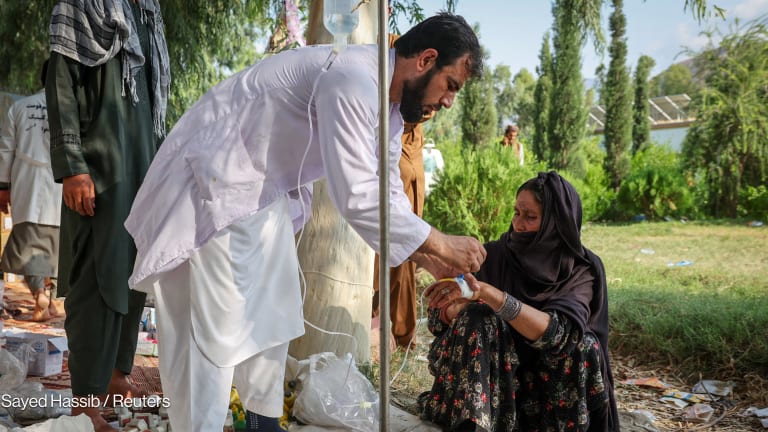
For the past decade, the international community’s Afghanistan focus has been on rebuilding the country’s military and police forces. This weekend, at a meeting in Tokyo, socio-economic assistance may finally take center stage.
On July 8, international leaders will reaffirm their commitment to Afghanistan’s development — and to investing money in it through 2014, when most NATO troops are expected to withdraw from the country. They are also expected to map out a cooperation framework for the time after the troop withdrawal. The goal is to harmonize international efforts and ensure the Afghan government is able to handle the increased amounts of foreign aid that will be funneled through local institutions.
It’s a tall order. Putting a peaceful Afghanistan in the driver’s seat of its own development is the primary goal. On the ground, the push for more country ownership is butting up against the realities of endemic corruption and continuing violence.
The NATO summit in Chicago this May proved donors were willing to continue funding security past 2014. Last week, foreign investors flocked to New Delhi to hear about opportunities opening up in mining, hydrocarbons, infrastructure and other areas. In Tokyo, more than 40 nations will follow suit because, well, not doing so is not considered an option.
For the aid community, that means continued engagement, but also an increasingly tough road in Afghanistan, as Devex correspondent James Dorsey reported last week.
Many of these concerns will be aired in Japan this week, especially at the Afghanistan Tokyo CSO Conference, which gathers civil society leaders July 7. At the Tokyo Cooperation Conference, then, government representatives will sign “mutual accountability frameworks” with Afghanistan, documents aimed at holding all parties accountable for coming through on their promises.
The Afghan central bank estimates the country will require between $60 billion and $70 billion in foreign assistance over the next decade. The Afghan government has indicated health, education, agriculture and mining to be priority sectors for development.
Afghanistan remains one of the poorest and most corrupt countries in the world despite the tripling of its gross domestic productover the past decade and billions in aid. The International Rescue Committee reports security conditions for Afghans are now the worst since 2001.
The United States currently gives 42 percent of its aid to Afghanistan in the form of budget support, according to Reuters. Overall, budget support accounts for around 20 percent of assistance.
This weekend should provide more certainty and confidence on how that money — and other development aid — is going to be spent. Stay tuned on Devex news.
Jennifer Brookland contributed reporting.








